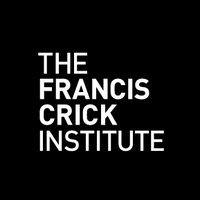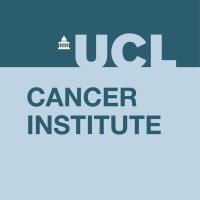
Swanton Lab
@swantonlab
The Cancer Evolution and Genome Instability Lab is led by @CharlesSwanton and is based @TheCrick and @uclcancer.
ID: 718587371684556800
08-04-2016 23:52:34
184 Tweet
3,3K Takipçi
131 Takip Edilen

Thank you Siddhartha Mukherjee for taking the time out of your busy schedule to visit Swanton Lab Will Hill Clare Weeden Charles Swanton to talk about our work on air pollution and lung cancer The Francis Crick Institute




It has been great to collaborate with Hannah Greenwood, Tim Witney and team on their investigation of a new PET-based approach for imaging NRF2 activation in NSCLC. A tour de force across cell lines, GEMMs and CRUK Lung Centre PDX models!

Extremely grateful and excited to have support from Science and Innovation at Cancer Research UK to work on cancer initiation with Swanton Lab The Francis Crick Institute! Ever grateful to Jayant K. Rane Alex Frankell for the supervision and mentorship

Patient-derived xenograft (PDX) models allow cancer researchers to study tumour tissue from patients in mice. Our CRUK Lung Centre paper Nature Communications describes 48 new PDX models and highlights the importance of intratumor heterogeneity in the development of cancer models (1/9)


My Swanton Lab postdoc paper is now out Nature Communications. It was a huge privilege to work with the TRACERx team. Thanks to Ariana Huebner and Dave Pearce, as well as everyone else UCL Cancer Institute, The Francis Crick Institute and CRUK Manchester Institute who made this happen.

Patient-derived xenograft (PDX) models are widely used and valuable tools in #CancerResearch. But there are limitations to how well these models can represent the genetic complexity of patient tumours Rob Hynds Swanton Lab buff.ly/4aNLqDh Science and Innovation at Cancer Research UK The Francis Crick Institute UCL News


New review out in Trends in Cancer from Chris Abbosh and Charles Swanton. Excellent summary of latest evidence & use case for ctDNA in NSCLC at diagnosis/landmark timepoints to help with staging and decisions around adjuvant treatment - worth reading #LCSM sciencedirect.com/science/articl…



Why do some patients benefit less than others from precision cancer medicine? We are excited to share our paper "Mixed responses to targeted therapy driven by chromosomal instability through p53 dysfunction and genome doubling” out in Nature Communications. nature.com/articles/s4146… 🧵

Today our study of the association between replication timing alterations and mutation acquisition during cancer evolution has been published in Nature Communications nature.com/articles/s4146…


Our TRACERx non-small cell lung cancer (NSCLC) patient-derived-xenograft (PDX) models are now available through CancerTools.org 🎉 A big thank you to Dave Pearce and the incredible CRUK Lung Centre team who have made this possible!

🚨So proud to present the first study from our Computational Cancer Genomics (CCG) Research Group group together with Charles Swanton Nnennaya Kanu and led by Olivia Lucas with key collaboration Sophie Ward and fundamental support Rija Zaidi Abi Bunkum & many others Out in Nature Genetics 👇 doi.org/10.1038/s41588… 🧵👇


Great to see this collaborative paper out Nature Communications. Tim Witney's team developed a PET radiotracer that distinguishes high/low NRF2 antioxidant pathway activation, including in our CRUK Lung Centre PDX models. Congrats Hannah Greenwood and team! 👏 nature.com/articles/s4146…







